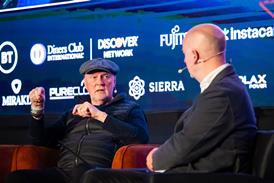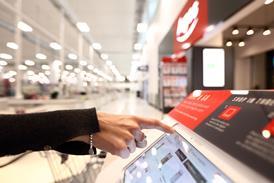Q&A: Philip Clarke, Tesco

Tesco group finance director Laurie McIlwee and group chief executive Philip Clarke faced a grilling from the press after the grocer reported its worst Christmas trading for decades today. Clarke talks the Big Price Drop, a move away from large superstores and why the retailer is not crisis. Alex Lawson reports
Already have an account? Sign in here



















